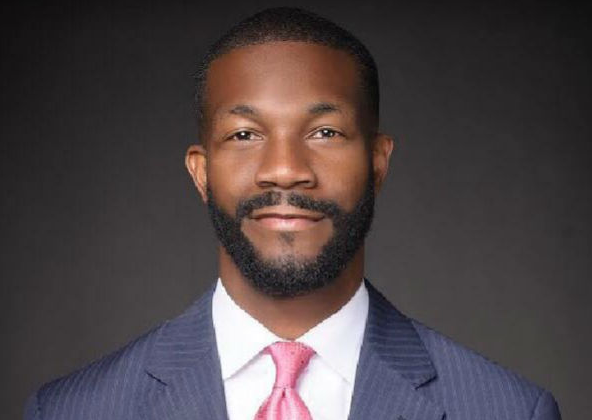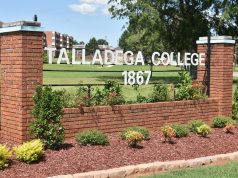By Randall Woodfin
Ever since I took office, I’ve been intentional about serving the city’s 99 neighborhoods, pushing neighborhood revitalization, embracing downtown development and driving an inclusive economy so that each Birmingham resident can be empowered to create his or her own economic future. This year, we secured a $25 million commitment from the National Community Reinvestment Coalition to work with our housing authority for affordable housing. Shipt is hiring and Birmingham residents are securing jobs with the fast-growing company. We’re tearing down blighted properties, cutting overgrown lots, and making historic investments in our children – from band uniforms to preparing the launch of the Birmingham Promise Initiative.
Progress is underway, but we have more work to do.
I did not agree with most of the Trump administration’s Tax Cut and Jobs Act of 2017. However, the act did contain a provision that created Opportunity Zones, a tax incentive for investors to invest capital in communities that have been ignored for far too long. I believe that Opportunity Zones are a tool that can — and must — be useful for neighborhood revitalization. My administration is working to bend Opportunity Zones in a way that works for our 99 neighborhoods.
From the moment Opportunity Zones were announced, we convened a coalition that combined neighborhood-level expertise and the voices of small business owners with the perspectives of real estate developers and the logic of investors. We secured 28 letters of support, and in April 2018, we were awarded 24 Opportunity Zones, touching 77 of our 99 neighborhoods. Opportunity Zones are not a grant, and investment is not guaranteed. Therefore, in the same way that we competed for those zones, we must now compete for investment.
Earlier this month, we launched the Birmingham Inclusive Growth (BIG) Partnership, a public-private endeavor with the twin goals of elevating the quality of life of our residents and producing tangible returns for investors. The BIG Partnership is privately-led, city-inspired and community-focused. It will be led by a Community Investment Board (CIB) and an Investment Board (IB) composed of a diverse cross-section of Birmingham’s civic and business leaders charged with ensuring that BIG Partnership investments reflect community needs and meet investor expectations. By harnessing Opportunity Zones in this way and using a potentially game changing federal program, we showcase to the nation what equitable and inclusive economic growth should look like.
Our BIG Partnership was announced at the Stonewall/American Life building, a 12-story building that for the first time in 36 years, will be filled with life. The renovation of the building is occurring because Opportunity Zone funding has been combined with investments from the city and historical tax credits from the state. By 2020, this project will provide affordable housing and remove some of the blight our city has seen for decades. Five units will be reserved for the Dannon Project, a nationally-renowned nonprofit focused on under- and unemployed youth who’ve encountered the justice system.
Opportunity Zones are also a tool to create jobs. Birmingham was one of a handful of cities to have their airport established as an Opportunity Zone, and with the Birmingham Airport Authority, we will direct investments in and around our airport to deepen Birmingham’s competitive advantage as a regional leader in transportation and logistics. Opportunity Zones around the University of Alabama at Birmingham will further develop the innovation corridor that will house the next generation of medical leaders.
Like many, I was skeptical that this tax break risked displacing local residents and small businesses. Without strong local leadership, it will. In Birmingham, we are working to make sure Opportunity Zones work for everyone. We’ve developed a gentrification index modeled on Los Angeles’ Index of Neighborhood Change to identify the Opportunity Zones that bear the most risk for displacing residents. We are evaluating interventions such as property tax freezes and other affordable housing development incentives that can be leveraged to ensure that residents and businesses in our Opportunity Zones actually remain in these communities and benefit from investments made by the BIG Partnership. I’m happy to be part of this effort in leading the charge to make sure Opportunity Zones will work the way we envision them to do so.
We believe this innovative vehicle can help drive investment in Birmingham, and we join LA Mayor Garcetti and Accelerator for America in hoping it becomes a national model for cities like ours. But, in order for Opportunity Zones to be successful in Birmingham, we need you.
My administration believes that Opportunity Zones can only work to revitalize our neighborhoods when local knowledge, creativity and ingenuity are harnessed to invest in the quality of life of our residents. That is why we are setting a goal to train 500 Birmingham residents on Opportunity Zones by summer 2020 so that residents can identify and shape projects throughout our city. Along with our Community Investment Board and Opportunity Alabama, my Innovation and Economic Opportunity team will train and educate grassroots leaders who can shape projects to attract investment in the places that they know best.
We believe that Birmingham has always been a city of builders. What we build next and who we include in the building process are the questions we must now answer.
To learn more about the BIG Partnership and sign up to get training on Opportunity Zones, please visit www.birminghamoz.org
Randall Woodfin is mayor of the City of Birmingham.





